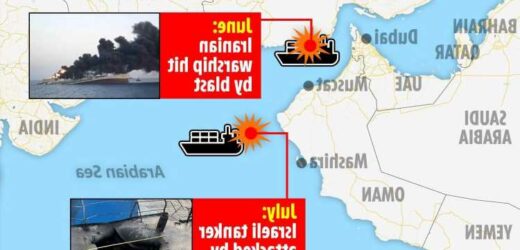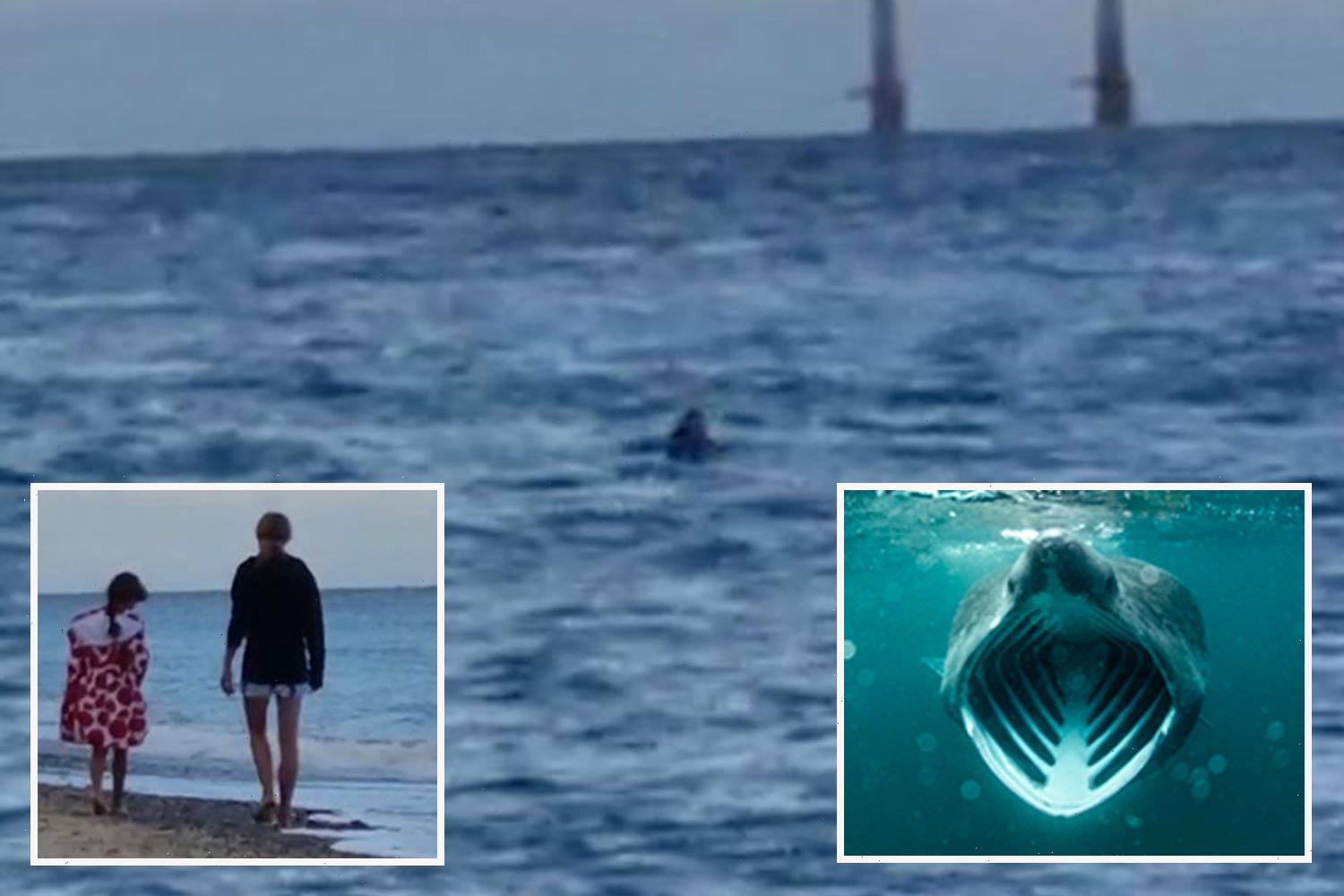THE dramatic rise in tit-for-tat assaults in the Israel-Iran "shadow war" could lead to an open conflict, it has been revealed.
At least 20 civilian ships have been attacked by mines, drones and commandos over the past six months during this undeclared conflict.
Analysis conducted by The Telegraph claims that the number of attacks has sharply risen since the beginning of 2021 and have escalated steadily year on year since 2019.
And now security experts believe that the "shadow war" – acts of conflict that are done in secret – between Iran and Israel could lead to open war.
The latest attack in the "shadow war" turned fatal last week after a British armed forces veteran was killed in a kamikaze drone strike/
Father-of-one Adrian Underwood and an unnamed Romanian captain died on an oil tanker, MT Mercer Street, off Oman while it was on its way to the UAE.
Suspicion immediately fell on Iran after the attack but on July 31, the country's state media claimed responsibility and said the attack was retaliation for an Israeli strike on Syria.
Al Alam TV, the Iranian government's Arabic-language television network, said the attack was in "retaliation for last week's Israeli attack on the Al-Dabaa Military Airport in the al-Qusair area of Homs".
The station says the attack on Al-Dabaa had led to the “martyrdom” of two people who linked to Iran’s “resistance axis,” which means pro-Iran groups such as Hezbollah or other militias.
Iran has been blamed for a number of attacks on Israeli tankers in its surrounding waters over the past number of years.
In 2019, two oil tankers, the Front Altair and Kokuka Courageous, were attacked by torpedos and burst into flames off the coast of Iran.
Balaclava-clad Iranian commandos seized the British tanker Stena Impero that year.
In 2020, Iranian ships were attacked at least six times, The Telegraph reports.
Since February, attacks between Israel and Iran have soared after Israel accused the crude oil tanker Emerald of carrying out an "eco-terrorist" attack when it spilt oil that covered 100 miles of Israeli beaches in thick tar.
'STRIKE LIKE THUNDER'
That attack came weeks after Iranian nuclear scientist Mohsen Fakhrizadeh was assassinated near the capital Tehran.
Iran vowed to "strike like thunder" after it blamed Israel for the assassination.
Fakhrizadeh was often compared with Robert Oppenheimer – the American physicist who oversaw the effort to build the atomic bomb in the 1940s – and has also been dubbed the "nuclear Qasem Soleimani."
A spokesperson for the Israeli military told The Guardian at the time: “We don’t comment on reports in the foreign media.”
In June Iran's largest navy ship caught on fire after a mysterious blast in the "engine room".
The ship burned for 20 hours in the Gulf of Oman before sinking.
Tehran-based defence and security expert Hossein Dalirian said "speculations about attacks on the ship are not true".
CYBER ATTACKS
"This happened due to a technical defect in the engine room," he tweeted.
Iranian state media also suggested an electrical fire may have broken out shortly after 2am.
But the attack on Mercer Street marks the first-known fatal attack after years of assaults on commercial shipping in the region linked to tensions with Iran over its tattered nuclear deal.
Iran's ambassador to London, Mohsen Baharvand, said last week that there had been 11 attacks on Iranian cargo so far this year.
Three attacks on container ships have been made public.
But it is not just physical attacks that have dominated the conflict.
In May 2020, Iran's port of Shahid Rajaee was hit with a cyberattack causing all of the shipping lanes into a state of chaos.
Iran has developed a large domestic arms industry in the face of international sanctions and embargoes barring it from importing many weapons.
Western military analysts say Iran sometimes exaggerates its weapons capabilities, though concerns about its ballistic missiles contributed to Washington leaving the nuclear pact.
Source: Read Full Article





